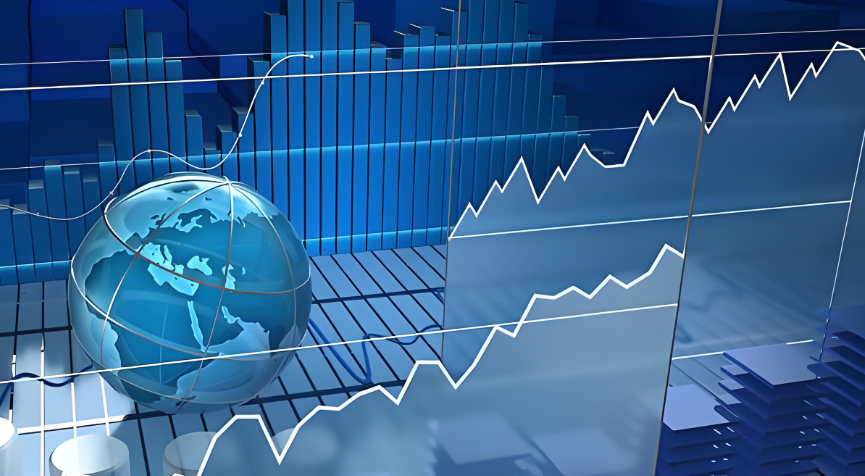ECB Continues Gradual Rate Cuts
Advertisements
In a recent comprehensive interview, Christine Lagarde, the President of the European Central Bank (ECB), underscored the pressing challenges Europe faces from the increasing rhetoric surrounding U.S. tariffs and the potential inflationary spillover from America into European markets. The dialogue presents a microcosm of a more extensive global economic interplay, whereby nations must navigate the complexities of trade policies and their ramifications, not only on their own economies but also on international relations.
The atmosphere since Monday has been fraught with uncertainty as shifts within U.S. governance have stoked fears of changing trade dynamics. The new administration has issued a slew of threats concerning tariffs on goods imported from the European Union, citing a belief that the EU has been “very unfriendly” towards the United States. While these are mainly speculative threats at this juncture, their repercussions within Europe’s economic spheres have been both palpable and concerning.
Lagarde has approached the prospect of U.S. tariffs with a sound and reasoned perspective, noting that the absence of immediate punitive tariffs on the new government’s first day indicated a thoughtful strategy. She pointed out that establishing tariffs could potentially backfire, failing to achieve the anticipated rejuvenation of American manufacturing by substituting imports with domestic production. Lagarde’s critique highlights the complexities involved in this approach, particularly as the U.S. economy currently operates at a near-peak capacity, evident from remarkably low unemployment rates and high levels of workforce participation.
In practical terms, achieving such a substitution culminates in various economic hurdles. It would necessitate significant investment in expanding production capabilities and restructuring industries, coupled with the realization that the imposition of tariffs would erode profit margins for importers. This pressure ultimately translates into higher consumer prices within the United States, a concern that underscores the precarious balance in the global supply chain.

Though direct tariff actions have yet to be executed, Lagarde's advice for Europe is to remain vigilant against these threats. She forecasts a future where any imposed tariffs may be “more selective and targeted,” hinting that countries within the EU must proactively strategize for such an eventuality. In tandem, European Economic Commissioner Valdis Dombrovskis conveyed a robust stance that the EU stands ready to implement “corresponding measures” in defense of its economic interests, possibly encompassing trade countermeasures and adjustments to internal support policies for businesses to cushion the impact of any U.S. tariffs.
The broader implications of U.S. fiscal policy also come into play here. Janet Yellen, the U.S. Treasury Secretary, has cautioned that any such tariff initiatives could undermine progress in combating domestic inflation. Such a sentiment resonates globally, as it would not only affect U.S. companies and households but would potentially reverberate through international markets, seeding uncertainty across economies still recovering from recent global disruptions.
Turning to the issue of inflation, which remains a central point in Lagarde's dialogue, her perspective provides a layer of reassurance relative to rising costs from U.S. production. She expressed confidence that despite potential inflationary pressures arising from the U.S., the ECB is not overly concerned and will adhere to its current trajectory of incremental interest rate reductions. Lagarde elaborated that this approach is data-driven and suggests a clearly defined direction for monetary policy, emphasizing the importance of objective economic data in guiding future decisions.
Her assurances come at a time when the ECB strategically positioned itself to meet its inflation targets, aiming for a 2% inflation rate by 2025. This is coupled with an ardent commitment to monitoring various economic indicators, including service prices, energy costs, wages, and insurance factors that contribute to inflationary dynamics. Lagarde's view delineates a road map not just grounded in reactive policy but also in anticipatory strategies that address economic trends head-on.
Moreover, the definition of a "neutral interest rate" has taken center stage in her discussions, narrowing its expected range from what was earlier proposed. This more precise framing serves to reinforce the ECB’s commitment to a coherent monetary policy that holds firm against inflation while encouraging sustainable growth. The adjustments in interest rates, currently expected to decrease further to about 2% by September 2025, illustrate a proactive approach to maintaining economic stability amid external pressures.
As these dialogues unfold, the engagement between European and American economic policies will undoubtedly continue to evolve. The dynamics at play are indicative of a broader narrative regarding trade, inflation, and global interdependence. The challenging discourse surrounding tariffs exemplifies the volatility of international trade relations now more than ever, prompting nations to weigh their choices carefully as they navigate this uncertain landscape.
In conclusion, the landscape of European economics is intricately tied to the unfolding events from across the Atlantic. The challenges posed by tariff threats from the U.S. and concerns regarding inflation necessitate a cohesive response from Europe, combining vigilance with adaptability. Lagarde’s assertive yet nuanced commentary reminds us of the meaning behind economic discussions—navigating uncharted waters with strategic foresight in a world that remains interconnected in ways that amplify both opportunity and vulnerability.
Leave a Reply
Your email address will not be published. Required fields are marked *